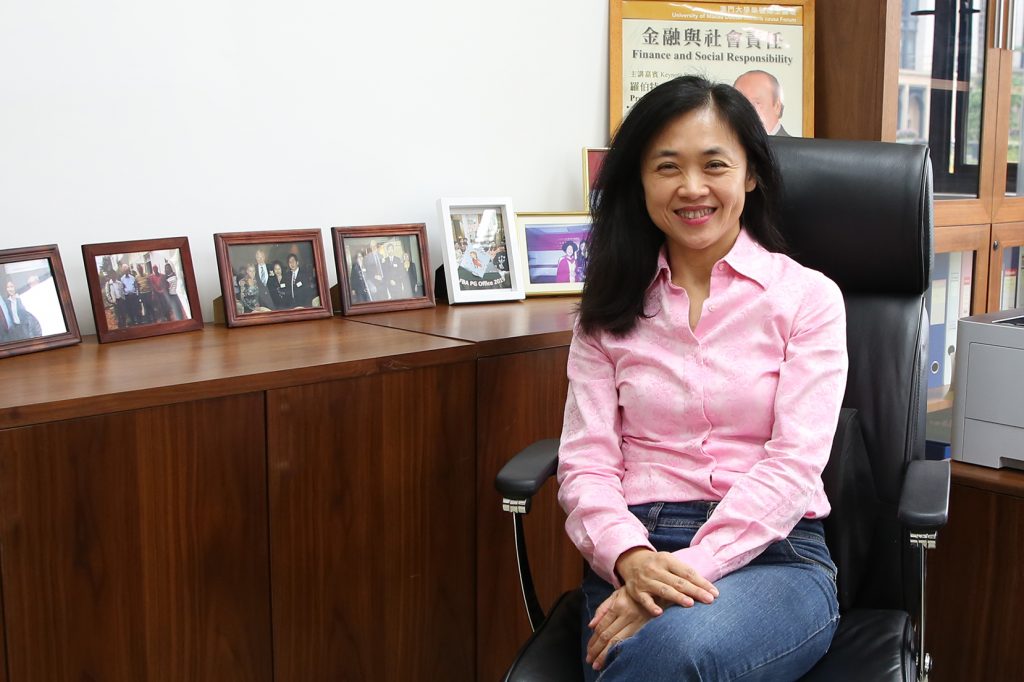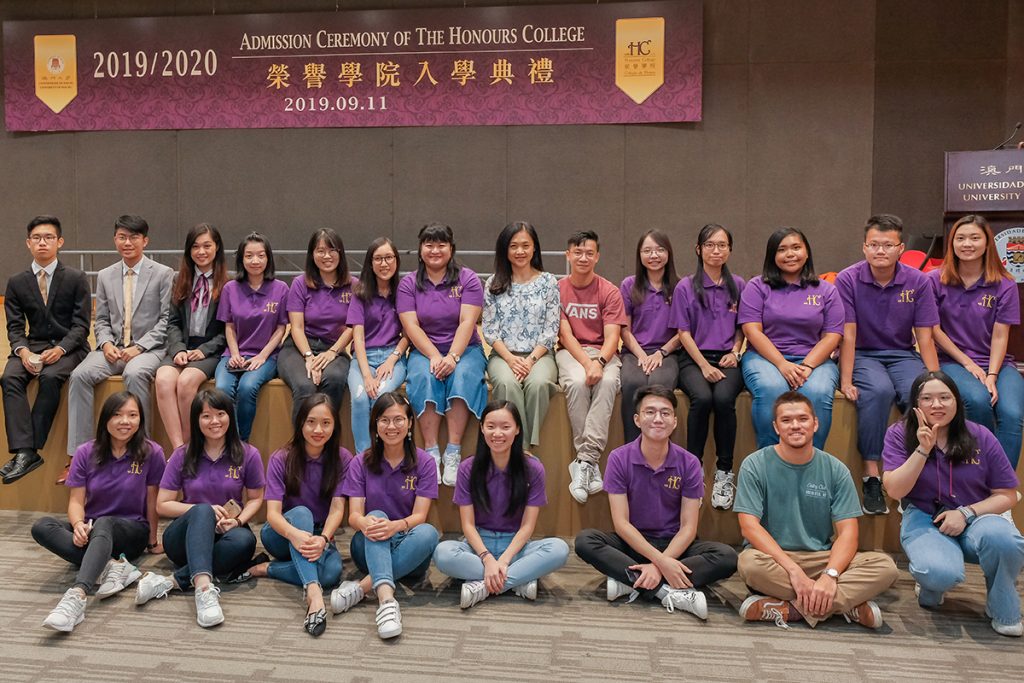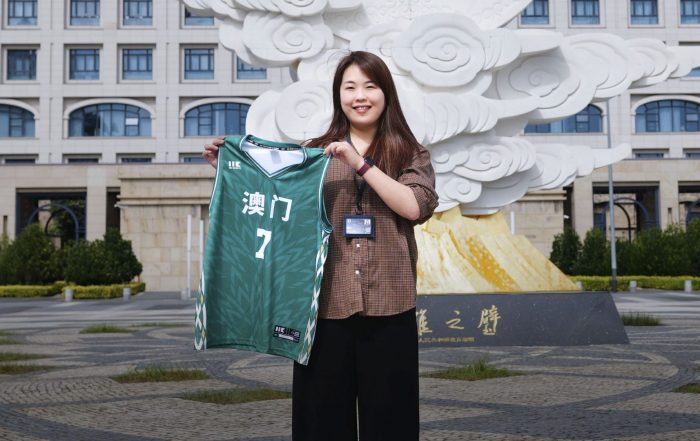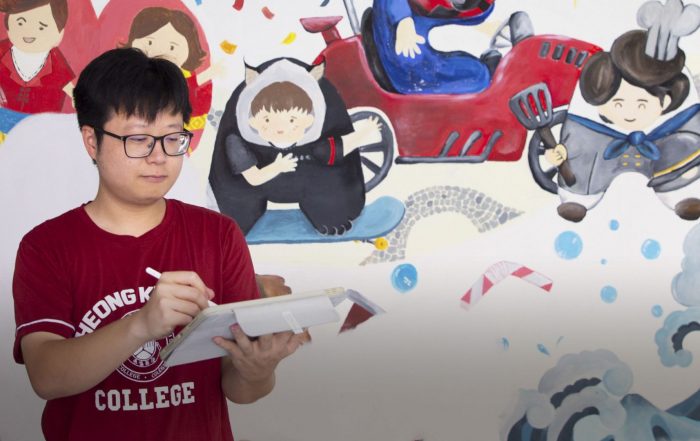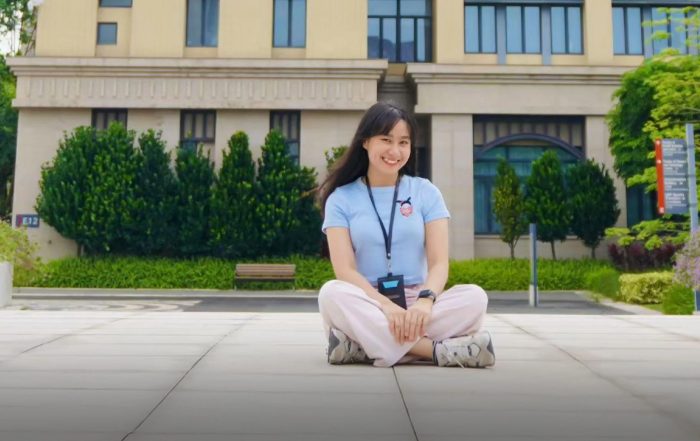Around the time of Macao’s handover to China in 1999, Prof Rose Neng Lai was a lecturer at the University of Macau (UM). She is currently the dean of UM’s Honours College and a professor in the Faculty of Business Administration. Although Prof Lai was born and raised in Macao, she obtained her master’s degree in Canada. Urged by a sense of mission to contribute to Macao as a scholar, she made the decision to return to the city and joined UM, a place she calls home.
More Opportunities after Macao’s Handover
After graduating from the University of East Asia, the predecessor of UM, Prof Lai decided to pursue further education in Canada. In the 1980s and 1990s, not many people outside Macao were familiar with this city. Even though she had strong confidence in her abilities, Prof Lai was worried that she would have a hard time competing with the students in Canada. But to her relief, she found that her knowledge acquired in Macao allowed her to perform as well as the other students in her class. ‘I began to realise that students from Macao are just as good as students from elsewhere,’ says Prof Lai. ‘And that realisation gave me a lot of confidence.’
Prof Lai obtained her master’s degree in 1992 and decided to return to Macao. She joined UM in 1993. ‘The university felt like a home and I wanted to do something for Macao, so I stayed,’ she says, crediting her smooth academic career to the free academic atmosphere of the university. While teaching at UM, she studied for a PhD degree at the Chinese University of Hong Kong. She obtained the degree in 2001 and became more involved in research and administrative work at UM.
According to Prof Lai, the handover of Macao created more opportunities for Chinese scholars to develop their careers at UM, for two reasons. First, Chinese scholars began to have stronger academic backgrounds. Second, many foreign faculty members left UM after the city’s handover and their positions became vacant. These positions were later filled by scholars from mainland China and Hong Kong, many of whom had obtained PhD degrees from the United States or Singapore. ‘Chinese scholars could already meet the academic requirements of the university, and they were also hard-working and passionate for their work, so they began to receive more recognition,’ says Prof Lai.
‘The first rector of UM after the handover was a native of Macao,’ says Prof Lai. ‘Before the handover, many mid-level and senior positions, as well as positions in the top management of the faculties, were held by foreigners. After the handover, the university implemented a series of reforms to create room for development and opportunities for Chinese scholars in Macao and its neighbouring regions.’ Prof Lai obtained her PhD degree in finance in 2001 and was promoted to assistant professor the same year. It was an important milestone in her life.
Contributing to Macao as a Scholar
Prof Lai is a long-time researcher of risk management, real options, and the stability of financial systems. She has received many awards, including the 2017 Edwin S Mills Real Estate Economics Best Paper Award. In addition to her positions at UM, she is also the executive editor of the journal International Real Estate Review, executive director of the Asian Real Estate Society (president from 2006 to 2007), executive director and founding member of the Global Chinese Real Estate Congress, and a life member of Clare Hall, University of Cambridge.
After her return to Macao in 1992, Prof Lai always hoped to contribute to the local society in her capacity as a scholar. But it was not until 2009 that she received her first invitation from a local association to conduct a study of Macao’s housing policy, although she was interviewed by Hong Kong media about Macao’s real estate market as early as 2006. And for that housing policy project, she was required to work with scholars from Hong Kong, which made her ask herself, ‘Why do we need help from Hong Kong to study matters in Macao?’ Later, after the release of some research reports from that project, she began to be approached more frequently by local organisations and interviewed more often by the local media. ‘Gradually, people began to see the value of the opinions of local scholars,’ she says. ‘After Macao’s handover, local scholars had more and more opportunities to participate in local projects and use their expertise to address local issues.’
Last year, she received invitations to conduct three local projects. Despite a hectic schedule, she accepted all of them. ‘I think it is very meaningful to be able to contribute to the local society through research,’ she says. ‘I am not doing it for money, I’m doing it for a sense of mission. The sense of accomplishment that I get from these projects is priceless.’
Source: UMagazine Issue 21


